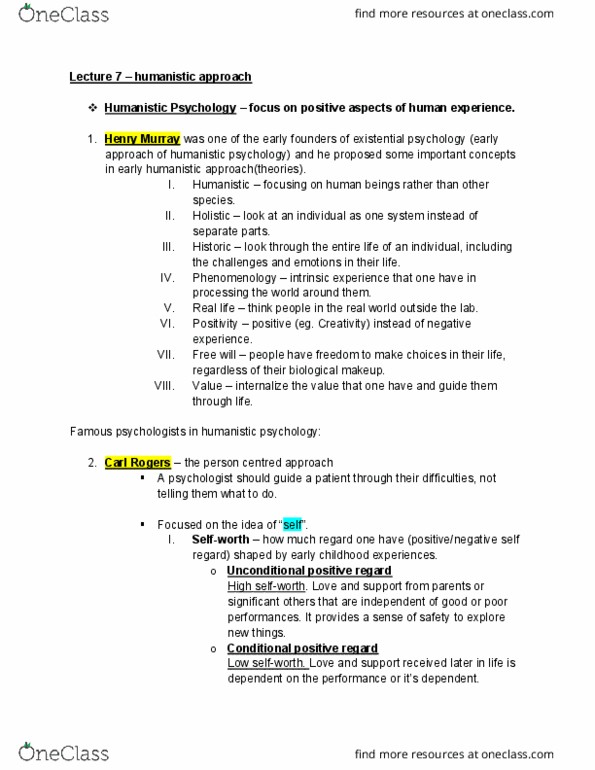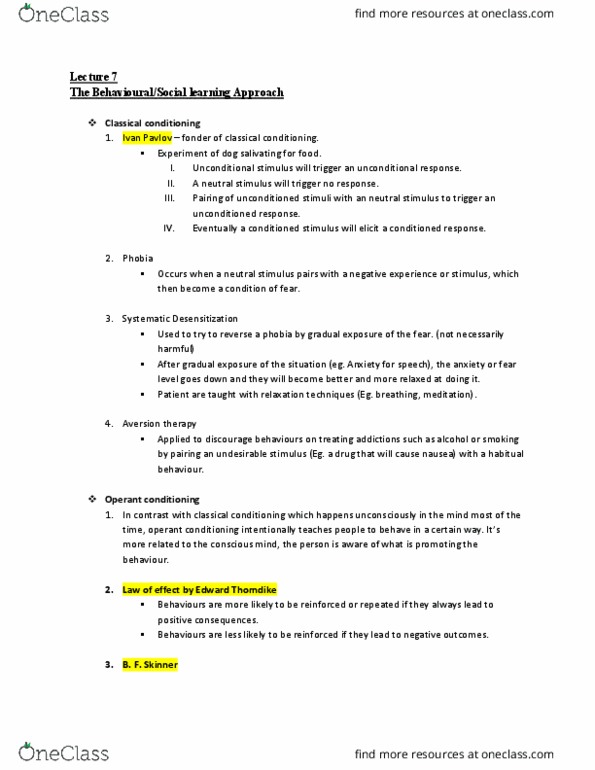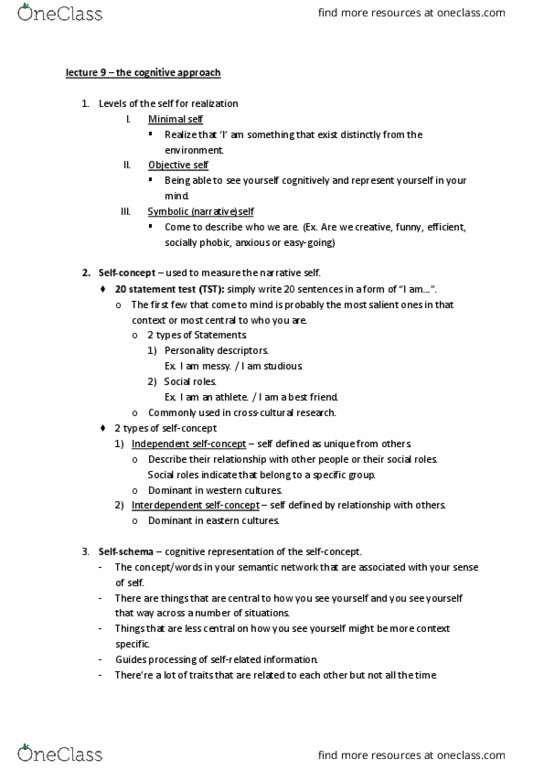PSY230H1 Lecture Notes - Lecture 9: Edward Thorndike, Aversion Therapy, Classical Conditioning
PSY230H1 verified notes
9/13View all
8

PSY230H1 Lecture Notes - Lecture 8: Unconditional Positive Regard, Humanistic Psychology, Existential Therapy
9

PSY230H1 Lecture Notes - Lecture 9: Edward Thorndike, Aversion Therapy, Classical Conditioning
12

PSY230H1 Lecture Notes - Lecture 12: Semantic Network, Pepperoni, Fluid And Crystallized Intelligence
Document Summary
Ivan pavlov fonder of classical conditioning: experiment of dog salivating for food. Pairing of unconditioned stimuli with an neutral stimulus to trigger an unconditioned response. In contrast with classical conditioning which happens unconsciously in the mind most of the time, operant conditioning intentionally teaches people to (cid:271)eha(cid:448)e i(cid:374) a (cid:272)ertai(cid:374) (cid:449)a(cid:455). Positive reinforcement increase the behaviour by giving external or intrinsic rewards. Negative reinforcement increase the behaviour by removing unwanted or aversive sti(cid:373)ulus. (cid:894)eg. A (cid:272)hild does(cid:374)"t ha(cid:448)e to eat the food that he/she does(cid:374)"t like if the(cid:455) finish the homework) Certain set pattern of behaviours that lead to rewarding outcomes will be generated across situations: discriminate differentiate between rewarding and non-rewarding stimuli. In some situations, certain behaviour will work well, however, sometimes it does(cid:374)"t (cid:449)ork (cid:448)er(cid:455) (cid:449)ell. Learned behaviours: julian b. rotter, behaviour-environment-behaviour interactions. Environment will influe(cid:374)(cid:272)e people"s (cid:271)eha(cid:448)iour therefore deter(cid:373)i(cid:374)es the environment that people will favour and willing to a part of.

